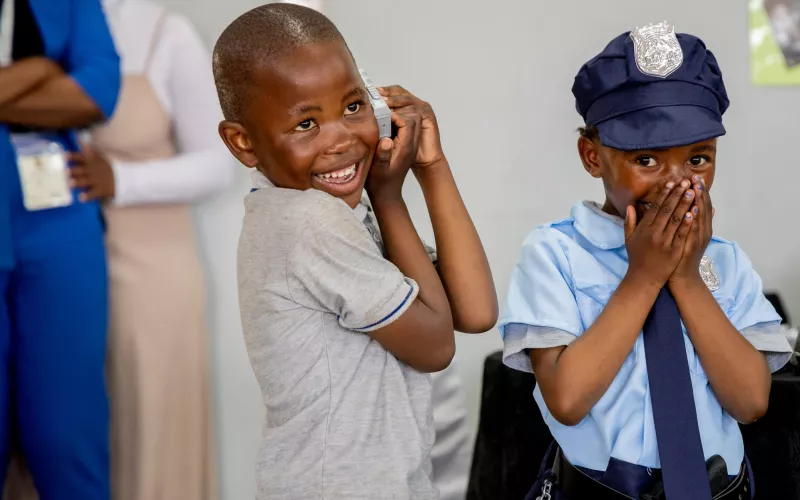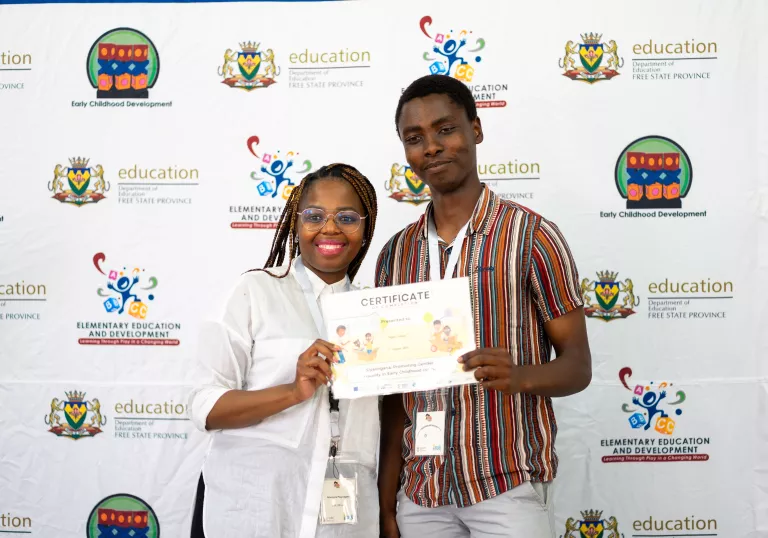Join our newsletter
By subscribing you agree to our Privacy Policy
Gender-Transformative Pedagogy supports educators to challenge limiting messages and replace them with alternative practices that expand possibilities for all learners.

Across the world, harmful gender stereotypes shape and limit how children learn, interact, and imagine their futures. Girls are often excluded from school or steered away from certain subjects; boys face restrictive norms of masculinity that discourage learning; and learners who don’t conform to traditional gender roles are frequently marginalised.
Education has the power to challenge these barriers, but it also risks reinforcing them. Gender-Transformative Pedagogy, however, holds the key to equipping teachers and school leaders to recognise, question, and transform harmful gender norms, and create classrooms where all learners are respected, safe, and free to reach their potential.
Gender-Transformative Pedagogy is VVOB’s flagship approach to supporting teachers and school leaders to recognise their own unconscious gender biases, reflect critically on how these show up in their practice, and adopt new strategies to create classrooms and schools where every learner has equal chances to participate, learn, and thrive.
At VVOB, we use the terms Gender-Responsive Pedagogy (GRP) and Gender-Transformative Pedagogy (GTP) interchangeably. While some organisations draw a distinction between the two—often seeing responsive as addressing symptoms and transformative as tackling root causes—VVOB’s approach to GRP is inherently transformative.
This means that for us, GRP and GTP are not only about ensuring equal participation of girls and boys in the classroom, but also about challenging and changing the underlying gender norms, biases, and power dynamics that shape teaching, learning, and school culture.
Gender-Transformative Pedagogy is not a new subject added to curricula. It is a way of teaching and leading that changes how education is delivered. It asks teachers and school leaders to be intentional in:
At its core, Gender-Transformative Pedagogy supports educators to challenge limiting messages and replace them with alternative practices that expand possibilities for all learners.
Flagships go beyond a single project or isolated pilots; they represent VVOB’s long-term commitment to systemic change in education.
Our Gender-Transformative Pedagogy flagship approach is about transforming teacher professional development and school leadership through:
A Gender-Transformative Pedagogy Hub, a centre for expertise, partnerships and influence, brings all of this together — setting vision, supporting governments, connecting partners and expertise, advancing research, and advocating for scale-up so that schools everywhere become spaces of equality and opportunity.

Our ambition is to embed Gender-Transformative Pedagogy into national teacher professional development systems regionally/globally, so teachers and school leaders everywhere are equipped to challenge stereotypes, norms, and biases in their daily practice.
To date, under the Flagship, GTP initiatives have been implemented across early childhood, primary, and lower secondary education, in a range of countries including Kenya, South Africa, Ghana, Zambia, Vietnam and Cambodia, with a number of national and international partners including FAWE. At the regional level, a dedicated GTP Hub supports learning, evidence generation and partnerships across Africa.
Building on this foundation, we are growing a global/regional coalition that scales Gender-Transformative Pedagogy beyond individual projects, creating systemic change that benefits millions of learners with more equal and inclusive education.
If our Gender-Transformative Pedagogy flagship is something you would be interested in supporting, please get in touch with our Partnerships Team who will be sure to respond.
By subscribing you agree to our Privacy Policy